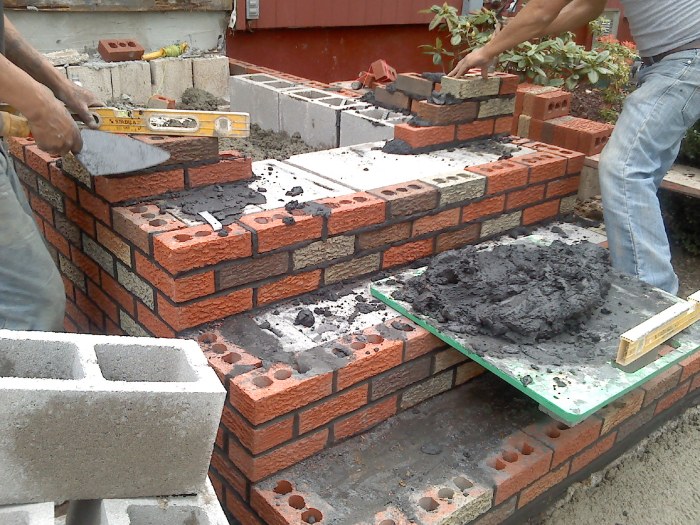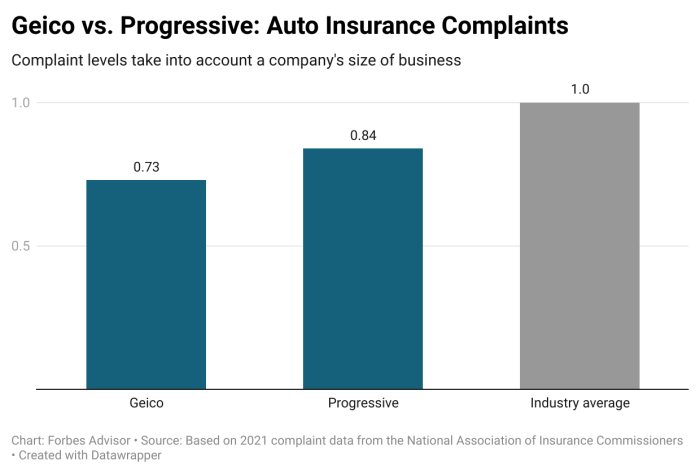Embarking on the journey to locate reliable masonry repair contractors near me brings forth a myriad of options and considerations. From evaluating their expertise to understanding the nuances of different repair services, this guide aims to equip you with the knowledge needed to make informed decisions.
As we delve deeper into the intricacies of masonry repair contractors, a world of possibilities and challenges awaits, shaping a narrative that is both enlightening and practical.
Researching Masonry Repair Contractors

When looking for reputable masonry repair contractors near you, it's important to do thorough research to ensure you hire a reliable and skilled professional. Here are some tips on how to evaluate and choose the best masonry repair contractor for your project.
List of Reputable Masonry Repair Contractors
- ABC Masonry Repair
- XYZ Masonry Services
- 123 Brick Restoration
- Best Stone Masonry
- Elite Masonry Solutions
Tips for Choosing the Best Contractor
- Check for proper licensing and insurance to ensure they are qualified to do the job.
- Ask for references and previous work samples to gauge the quality of their work.
- Get multiple quotes to compare prices and services offered by different contractors.
- Look for experienced contractors with a solid reputation in the industry.
- Consider the timeline and availability of the contractor to ensure they can complete the project on time.
Importance of Reading Reviews and Checking References
Reading reviews from past clients and checking references can give you insight into the contractor's work ethic, reliability, and quality of work. It's essential to gather feedback from others who have worked with the contractor to make an informed decision before hiring them for your masonry repair project.
Types of Masonry Repair Services Offered
When it comes to masonry repair services offered by contractors, there are several common options available to address various issues that may arise with brick and mortar structures.Tuckpointing, brick replacement, and mortar repair are some of the most commonly provided masonry repair services.
Each of these services targets specific problems and requires different techniques to ensure the structural integrity and aesthetic appeal of the masonry.
Tuckpointing
Tuckpointing is a repair technique that involves removing deteriorating mortar from between bricks and replacing it with new mortar. This process helps to strengthen the structure and improve its appearance by creating clean, straight lines between the bricks. It is typically done to address minor mortar deterioration and maintain the overall integrity of the masonry.
Brick Replacement
Brick replacement is necessary when individual bricks become damaged or cracked beyond repair. In this process, the damaged bricks are carefully removed and replaced with new ones that match the existing structure in size, color, and texture. This helps to maintain the structural stability of the masonry and prevent further damage.
Mortar Repair
Mortar repair involves fixing cracks, gaps, or crumbling mortar joints between bricks. This process helps to prevent water infiltration, which can cause further damage to the masonry over time. Repairing mortar joints can also enhance the overall appearance of the structure by ensuring a uniform and cohesive finish.It is important to understand when to opt for repointing (tuckpointing) versus rebuilding in masonry repair projects.
Repointing is a cost-effective solution for addressing minor mortar deterioration and maintaining the structural integrity of the masonry. On the other hand, rebuilding may be necessary when the damage is extensive, and the structural stability of the masonry is compromised.
Contractors can assess the extent of the damage and recommend the most suitable repair option based on the specific needs of the project.
Cost Estimation and Budgeting
When it comes to masonry repair projects, understanding the factors that influence costs and how contractors estimate expenses is crucial. Here, we will break down the key elements that impact the cost of masonry repair, discuss how contractors typically estimate these costs, and share some tips on budgeting and saving money when hiring masonry repair contractors.
Factors Influencing the Cost of Masonry Repair
- The extent of damage: The severity of the damage to the masonry structure will directly impact the cost of repairs. Minor cracks or chips may be less expensive to fix compared to major structural issues.
- Type of material: The type of masonry material used in the structure will also affect the cost. Some materials are more expensive to work with and require specialized skills for repair.
- Accessibility: The location and accessibility of the damaged area can influence costs. Difficult-to-reach areas may require additional equipment or labor, leading to higher expenses.
- Permit requirements: Depending on the scope of the repair work, permits may be necessary, adding to the overall cost of the project.
Estimating Costs for Masonry Repair Projects
- Site visit: Contractors typically conduct a site visit to assess the extent of the damage and determine the materials and labor required for the repair.
- Material costs: Contractors consider the cost of materials needed for the repair, including masonry units, mortar, and any additional supplies.
- Labor costs: The labor required to complete the repair, including the number of workers and the time involved, will factor into the overall cost estimate.
- Additional expenses: Contractors may include overhead costs, profit margins, and any unforeseen circumstances in their cost estimates.
Tips for Budgeting and Saving Money
- Get multiple quotes: It's always a good idea to obtain quotes from multiple masonry repair contractors to compare prices and services offered.
- Consider timing: Scheduling repairs during off-peak seasons or times when contractors are less busy may result in cost savings.
- Maintain your masonry: Regular maintenance and timely repairs can help prevent major damage, ultimately saving you money in the long run.
- Ask about financing options: Some contractors may offer financing plans or payment options that can help you manage the cost of masonry repairs.
DIY vs. Hiring Professionals
When it comes to masonry repair, homeowners often face the decision of whether to tackle the project themselves or hire professional contractors. Both options have their own set of advantages and disadvantages, which should be carefully considered before making a decision.DIY masonry repair can be a cost-effective solution for those who are skilled in basic repair work and have the necessary tools.
It allows homeowners to save money on labor costs and gives them the satisfaction of completing a project on their own. However, DIY projects can be time-consuming and may lack the expertise needed for more complex repairs.On the other hand, hiring professional masonry repair contractors ensures that the job is done correctly and efficiently.
Professionals have the experience, knowledge, and tools to handle all types of masonry repairs, from minor cracks to structural issues. While this option may come with a higher price tag, it guarantees a quality result and saves homeowners from potential mistakes.
Safety Considerations
When deciding between DIY and professional masonry repair, safety should always be a top priority. Working with heavy materials like bricks and stones can be dangerous, especially when dealing with heights or structural instability. Here are some safety considerations to keep in mind:
- Always wear appropriate safety gear, including gloves, goggles, and a mask, to protect yourself from dust and debris.
- Use proper scaffolding or ladders to reach high areas safely, and never attempt to work on unstable surfaces.
- Be cautious when handling tools like hammers and chisels, and follow proper techniques to avoid injuries.
Risks of Improper Repair
Improper masonry repair can lead to serious consequences, including further damage to the structure and safety hazards. It's crucial to recognize when a repair job is beyond your skill level and seek professional help. Here are some signs that indicate it's best to leave masonry repair to the experts:
- Large or deep cracks in the masonry that may indicate structural issues.
- Water infiltration or moisture damage that requires specialized repair techniques.
- Previous failed repair attempts that have worsened the condition of the masonry.
By weighing the advantages and disadvantages of DIY versus hiring professionals, considering safety factors, and recognizing the risks of improper repair, homeowners can make an informed decision that ensures the longevity and integrity of their masonry structures.
Maintenance Tips for Preserving Masonry
Regular maintenance is essential for preserving the integrity of masonry structures and preventing the need for extensive repairs. By following some simple tips, you can ensure the longevity of your masonry and avoid costly damage in the future.
Inspect and Clean Regularly
- Regularly inspect your masonry for any signs of wear, cracks, or damage.
- Clean the masonry surface using a gentle brush or low-pressure water to remove dirt, mold, and debris that can cause deterioration.
- Check for any vegetation growing near the masonry, as roots can cause cracks and damage over time.
Monitor for Early Signs of Damage
- Look out for efflorescence, which appears as white, powdery deposits on the surface of masonry and indicates moisture issues.
- Check for spalling, where the masonry surface begins to flake or chip off, signaling underlying structural problems.
- Observe any bulging or leaning in the masonry, as this could be a sign of foundation issues.
Schedule Professional Inspections
- Consult with a professional masonry contractor for annual inspections to detect any hidden issues early on.
- Seek professional help immediately if you notice any significant cracks, displacement, or other serious damage to your masonry.
Final Conclusion

In conclusion, the realm of masonry repair contractors near me is rich with opportunities to enhance and preserve the structural integrity of your building. Armed with the right information and guidance, you can navigate this landscape with confidence and assurance.
FAQ Section
How can I evaluate and choose the best masonry repair contractor?
Look for experience, certifications, and previous work examples to gauge the expertise of a masonry repair contractor.
What are the differences between tuckpointing, brick replacement, and mortar repair?
Tuckpointing involves filling in mortar joints, brick replacement entails replacing damaged bricks, and mortar repair focuses on fixing deteriorating mortar.
What factors influence the cost of masonry repair?
Factors like the extent of damage, materials used, and labor costs can influence the overall cost of masonry repair.
Is DIY masonry repair a good idea?
While DIY can be cost-effective, it's essential to weigh the risks of improper repair and safety concerns before opting for it.
How can I maintain masonry to prevent extensive repairs?
Regular inspections, timely repairs, and keeping masonry surfaces clean can help prevent the need for extensive repairs in the future.









